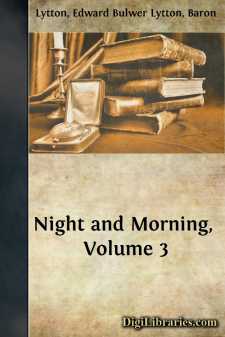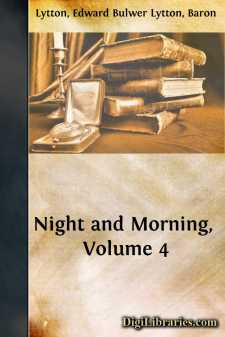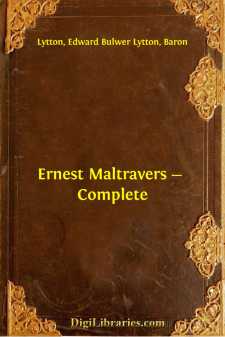Categories
- Antiques & Collectibles 13
- Architecture 36
- Art 48
- Bibles 22
- Biography & Autobiography 813
- Body, Mind & Spirit 142
- Business & Economics 28
- Children's Books 17
- Children's Fiction 14
- Computers 4
- Cooking 94
- Crafts & Hobbies 4
- Drama 346
- Education 46
- Family & Relationships 57
- Fiction 11829
- Games 19
- Gardening 17
- Health & Fitness 34
- History 1377
- House & Home 1
- Humor 147
- Juvenile Fiction 1873
- Juvenile Nonfiction 202
- Language Arts & Disciplines 88
- Law 16
- Literary Collections 686
- Literary Criticism 179
- Mathematics 13
- Medical 41
- Music 40
- Nature 179
- Non-Classifiable 1768
- Performing Arts 7
- Periodicals 1453
- Philosophy 64
- Photography 2
- Poetry 896
- Political Science 203
- Psychology 42
- Reference 154
- Religion 513
- Science 126
- Self-Help 84
- Social Science 81
- Sports & Recreation 34
- Study Aids 3
- Technology & Engineering 59
- Transportation 23
- Travel 463
- True Crime 29
Night and Morning, Volume 3
Description:
Excerpt
CHAPTER I.
"The knight of arts and industry,
And his achievements fair."
THOMSON'S Castle of Indolence: Explanatory Verse to Canto II.
In a popular and respectable, but not very fashionable quartier in Paris, and in the tolerably broad and effective locale of the Rue ——, there might be seen, at the time I now treat of, a curious-looking building, that jutted out semicircularly from the neighbouring shops, with plaster pilasters and compo ornaments. The virtuosi of the quartier had discovered that the building was constructed in imitation of an ancient temple in Rome; this erection, then fresh and new, reached only to the entresol. The pilasters were painted light green and gilded in the cornices, while, surmounting the architrave, were three little statues— one held a torch, another a bow, and a third a bag; they were therefore rumoured, I know not with what justice, to be the artistical representatives of Hymen, Cupid and Fortune.
On the door was neatly engraved, on a brass plate, the following inscription:
"MONSIEUR LOVE, ANGLAIS, A L'ENTRESOL."
And if you had crossed the threshold and mounted the stairs, and gained that mysterious story inhabited by Monsieur Love, you would have seen, upon another door to the right, another epigraph, informing those interested in the inquiry that the bureau, of M. Love was open daily from nine in the morning to four in the afternoon.
The office of M. Love—for office it was, and of a nature not unfrequently designated in the "petites affiches" of Paris—had been established about six months; and whether it was the popularity of the profession, or the shape of the shop, or the manners of M. Love himself, I cannot pretend to say, but certain it is that the Temple of Hymen—as M. Love classically termed it—had become exceedingly in vogue in the Faubourg St.—. It was rumoured that no less than nine marriages in the immediate neighbourhood had been manufactured at this fortunate office, and that they had all turned out happily except one, in which the bride being sixty, and the bridegroom twenty-four, there had been rumours of domestic dissension; but as the lady had been delivered,—I mean of her husband, who had drowned himself in the Seine, about a month after the ceremony, things had turned out in the long run better than might have been expected, and the widow was so little discouraged; that she had been seen to enter the office already—a circumstance that was greatly to the credit of Mr. Love.
Perhaps the secret of Mr. Love's success, and of the marked superiority of his establishment in rank and popularity over similar ones, consisted in the spirit and liberality with which the business was conducted. He seemed resolved to destroy all formality between parties who might desire to draw closer to each other, and he hit upon the lucky device of a table d'hote, very well managed, and held twice a-week, and often followed by a soiree dansante; so that, if they pleased, the aspirants to matrimonial happiness might become acquainted without gene....












